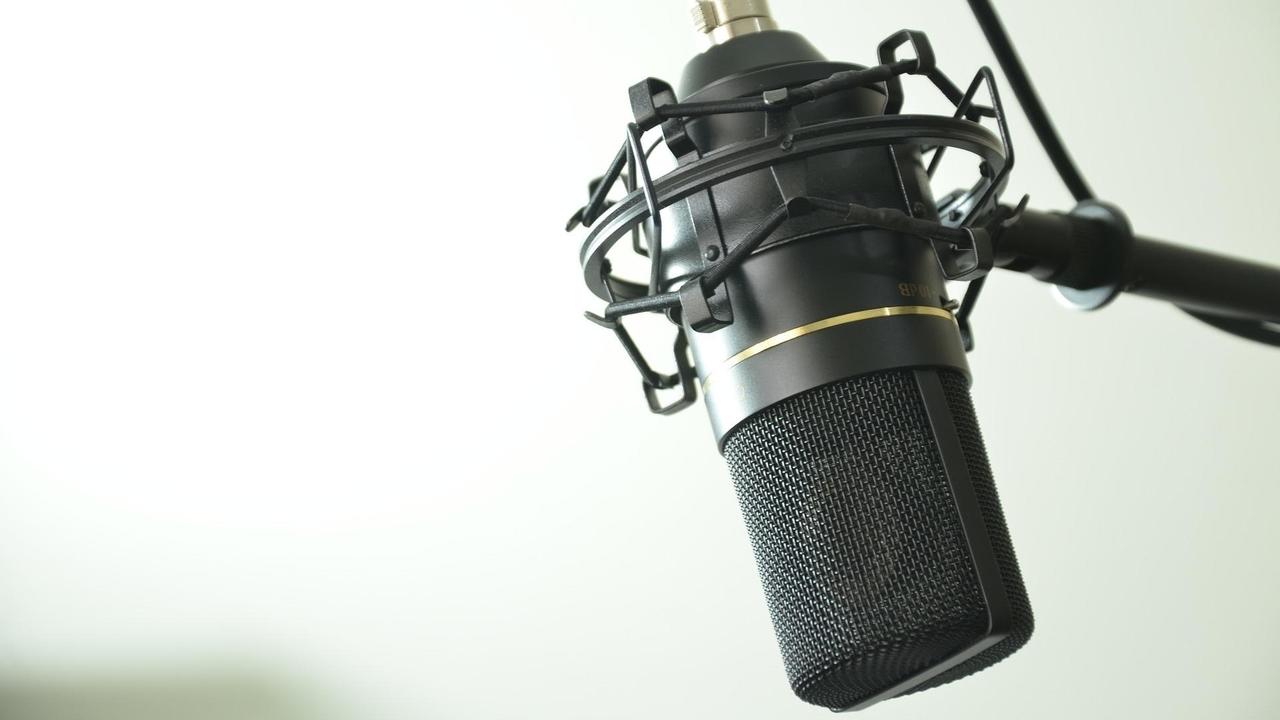It's not Enough to be "Engaging"

I gotta level with you:
While it's important to learn how to be an engaging public speaker, being "engaging" isn't nearly enough to make you stand out from the crowd.
Every day I meet speakers who are engaging and charismatic as all get out.
They have stage-presence, they know how to create vocal variety, they tell amusing stories that have beginnings, middles, and ends.
But here’s the thing...
While they may be engaging, they aren’t effective.
Their audiences may go home amused or inspired, but they don’t take any sort of action.
What does this look like?
-
The entrepreneur who walks away from a speaking engagement with a very inspired audience...but no new clients.
-
The activist who leaves her audience thinking, “My God, that’s terrible! Something needs to be done!”...but they don’t do anything.
-
The academic who sets down the slide changer to their brilliant powerpoint and sees a crowd of faces that have learned something amazing....but have no way to ...
Why You Can't Find Any Public Speaking Opportunities

“I’d love to be a better public speaker, but the truth is, my job doesn’t really require me to do that.”
This is a sentence I hear A LOT.
Often, it’s the first response I get when I introduce myself as a public speaking coach to a new group of people.
And I totally get it.
Why invest in learning a skillset you’re not regularly getting asked to use?
But here’s the catch 22…
Speaking opportunities aren’t going to present themselves to you until you start presenting yourself as a skilled public speaker.
Let’s untangle that for a moment…
Here’s the pattern that I’ve seen emerge with client after client:
At the end of our first session, I’ll usually get met with a cautiously optimistic smile and something like this:
“I’m really glad I’m working on this, but I don’t think there are going to be a lot of opportunities for me to practice this week. I don’t tend to get called on during meetings.”
Then the surprised emails start rolling in...
Around week 2:
“Guess what?! There ...
Did Shakespeare Destroy Your Public Speaking Confidence?

"Oh God, I HATED Shakespeare in school."
This is the reaction I get from 90% of my public speaking clients when they learn that, before I was a public speaking coach, I taught Shakespeare performance at an Elementary/Middle School.
I didn't think much of it the first couple times a client said this.
After all, Shakespeare isn't everybody's cup of tea.
But after 5 or 6 clients said that exact phrase to me, I started to get curious...
Why was hating Shakespeare such a common experience among my public speaking clients?
Why was my experience with Shakesp...
The Secret Ingredient in a Memorable Talk

Let's play a game.
Think back to the last meeting/presentation you attended.
What words, phrases, and/or images do you remember?
For most of us, the answer is "none."
We can usually recall vaguely what the presentation was about, but unless the speaker was a seasoned pro, we don't recall many specific moments.
(Unless someone spilled coffee all over the table. That we tend to remember.)
Why is that?
And, more importantly, what can we do to make ourselves as memorable as the seasoned speaker or spilled coffee?
The best way to ensure your presentation is memorable is to use what I like to call "sticky language."
Sticky language is specific and sensory (and receives extra bonus points if it's surprising!)
Here's an example of sticky language at work:
Let's say I was giving a presentation on how to make your speech more memorable. (I know, very meta.)
Here are two ways I could teach my lesson.
- "Want to become a more compelling speaker? People tend to remember visual lan ...
How to Nail the Q&A

There are few things that make people more nervous than giving a prepared speech in public.
But one thing that certainly does?
Taking questions from the audience after.
Boy howdy, does a Q&A send our lizard brains into fight or flight!
Why?
Because we are now outside the land of rehearsed presentations, and into the world of...
IMPROV.
(Fortunately for you, dear reader, I'm OBSESSED with improv.)
Q&As can be scary because we feel like there's no way to practice them.
But this simply isn't true.
Professional improvisers don't rehearse the shows they perform on stage, but they practice the skills constantly.
And the seemingly simple skill that the practice the most?
Listening.
Let's get into it, shall we?
The #1 mistake I see speakers make during Q&A is:
Starting their answer before they've fully processed the question.
We've all seen it.
A politician is asked a pointed question about healthcare premiums, and that politician responds with a very rehearsed story ab...
The Awkward Silence

It's time to own up...
Last time I updated the blog, I gave you my go-to exercise for curing "uhs" "ums" and"likes" in a prepared speech.
(Need a refresher? I'll give you a hint: The exercise is called "Beat the Buzzer.")
At the end of that article, I promised I'd come back next week to reveal how to get rid of those pesky filler words in extemporaneous speaking.
Then...
I took...
a very long...
Pause.
Now, is it possible I forgot to hit the "schedule" button on the following blog?
Sure.
BUT, wouldn't it be more exciting if this long pause was intended to illustrate a point?!
(Let's go with that.)
Because guess what?
When it comes to extemporaneous speaking, the #1 cause of filler words is:
Fear of the awkward silence.
That's right.
The "uhs", "ums", and "likes" usually creep in when we're unsure of what to say next.
We use filler words as a crutch to help us avoid silences.
But here's the thing...
Silence is an incredibly important tool in public speaki...
Stop Saying "Like" : How to Eliminate Filler Words from Your Public Speaking Vocabulary

Do you suffer from the curse of "ums," "uhs," and "likes" when you speak?
Join the club!
One of the #1 problems clients come to me with is:
"How do I stop saying 'like' and 'um' in my talk?!"
In general, I have two ways I like to fight the plague of what I call filler words.
We'll cover the first method today, and I'll save one for next week, just to keep you on the edge of your seat. ;)
STRATEGY #1: Beat the Buzzer
This approach is usually best for memorized speeches—and it's a game!
(We'll discuss the tougher issue of eliminating filler words in extemporaneous speaking next week!)
The game is all about creating new muscle memory around your speech.
When filler words creep into prepared remarks, it's not because you're struggling to come up with the next thought—it's a habitual vocal tic.
So how do we get rid of this tic?
You may not like the answer...
Here's how to play "Beat the Buzzer."
STEP 1: Grab a friend to practice your talk in front of.
STEP 2: Arm your fr...
How Much Should I Be Memorizing?

To memorize, or not to memorize?
That is the first question most of my public speaking clients come to me with.
Here are the two scenarios I usually hear:
- If I try and memorize my whole talk, it takes HOURS and I end up sounding stiff and robotic.
- When I just wing it, sometimes it turns out great, but sometimes I completely lose my train of thought and start throwing out “likes” and “ums” all over the place.
Either of those sound familiar to you?
(We’ve ALL been there.)
So, how much exactly should you be memorizing?
In my opinion, whether your presentation is 5min or 90min, the answer is the same.
Here are the 3 elements to memorize:
- Your Hook
- Your Closer
- Your Roadmap
Let’s break that down, shall we?
Your Hook
This is the opening of your talk. You always want to start your presentation with a hook that engages the audience.
Your hook can take many forms. Here are a few possible openers:
- Ask a question that requires a show of hands
- Tell them a sto...
A Very Christmas-y Cure to Monotone

One of the most common questions I get from my clients is:
How do I break the habit of speaking in monotone?
I can be presenting on the most interesting subject in the world, but when I start to speak in my boring voice, I see everyone’s eyes glaze over.
When I try to add more vocal variety, I feel weird and fake. HELP!
Do you relate to this?
Do you fear that your vocal style is that of Ben Stein in Ferris Bueller’s Day Off?
Bueller? Bueller?
Never fear! I’ve got a yuletide cure for monotone coming your way!
Let’s break this down for a second:
What is “monotone”?
Monotone describes a continuing sound, especially of a person's voice, that is unchanging in pitch and without intonation.
So, what’s the cure for monotone?
Adding variation in pitch and intonation!
See, wasn’t that easy?!
I kid, I kid!
Kind of…
See, here’s the problem:
We know the cure to monotone is adding variation to pitch and intonation, we just feel super weird and unnatural when we do it.
And th...
How to Calm Your Nerves By "Game-ifying" Your Public Speaking (Speak Masterfully Tip #3)

Buckle up for week 3 of our on-going blog series:
You ready for tip #3?!
Okay! Here it is:
“Don’t be nervous!”
JUST KIDDING!
Wouldn't that be an incredibly unhelpful tip?
Let's talk for a second about why “don’t be nervous” such an unhelpful piece of direction to give someone.
Because it’s inactive.
In general, humans aren’t great at processing negative direction.
For example: Don’t think of an alligator.
See...
Similarly, a doctor trying to improve a patient’s diet will probably have greater success with the prompt “Eat more vegetables” than “Eat less junk food.”
A lovely side-effect of eating more vegetables is that people naturally eat less junk food, but it’s much easier to get them there with an active prompt.
That’s why the real Tip #3 is Find a Game.
Let’s give you something ACTIVE to accomplish during this talk.
Time to set an intention.
Get clear on what...



